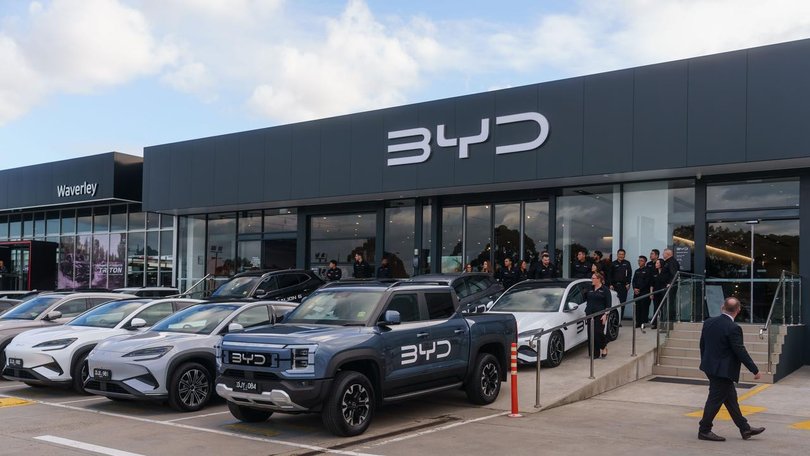China set to dominate Aussie vehicle import market

More than two in every five new cars sold in Australia will be made in China within a decade in one of the biggest shake-ups in the automotive industry in years.
The move, fuelled by motorists switching to low-emission vehicles, is expected to challenge the dominance of car brands manufactured in Japan and Thailand.
But automotive dealers have questioned whether the move will be wholly positive for motorists, or whether greater protections will be needed to ensure the availability of vehicle parts and servicing.
Sign up to The Nightly's newsletters.
Get the first look at the digital newspaper, curated daily stories and breaking headlines delivered to your inbox.
By continuing you agree to our Terms and Privacy Policy.The Centre for International Economics released the findings on Tuesday, in an analysis prepared for the Australian Automotive Dealer Association.
The report found almost half (43 per cent) of vehicles imported to Australia could be made in China by 2035, dwarfing current leader Japan on 22 per cent, and Thailand with 11 per cent of the market.
Japan-made vehicles represented 30 per cent of new cars sold in Australia this year, while Chinese vehicles made up 16 per cent, according to the Federal Chamber of Automotive Industries.
The swap to Chinese vehicles will be driven by consumers’ rising demand for hybrid and electric options, the report found, and falling prices offered by Chinese brands.
The change was already prevalent in the Australian market, association chief executive James Voortman said, thanks to an influx of Chinese brands and models.
“Australia is at an inflection point where we are going to see exponential growth of sales and new brands from China,” he said.
“This growth comes on top of the change to electric vehicle drive trains.”
Chinese electric vehicle brands already established in the country include Xpeng, Zeekr, Geely, MG and BYD, which celebrated its 60,000th local sale earlier in July.
BYD considered Australia a “key market,” president Wang Chuanfu said, as it was well established and highly competitive.
“Success here is a signal to the world that BYD vehicles can meet and exceed the expectations of mature markets,” he said.
But Mr Voortman, who addressed the association’s convention in Brisbane on Tuesday, said introducing so many brands to Australia should raise questions about whether consumer guarantees went far enough.
“This rate of growth can have unintended implications to consumer protections such as the supply of parts, wait times to service vehicles, and the long-term ability of manufacturers to guarantee their consumer warranties,” he said.
“We will be talking to government about what consumer protections are adequate and appropriate.”
Vehicle purchases are covered by consumer guarantee rights, according to the Australian Competition and Consumer Commission, including the provision of spare parts and repairs for a reasonable time after purchase.
